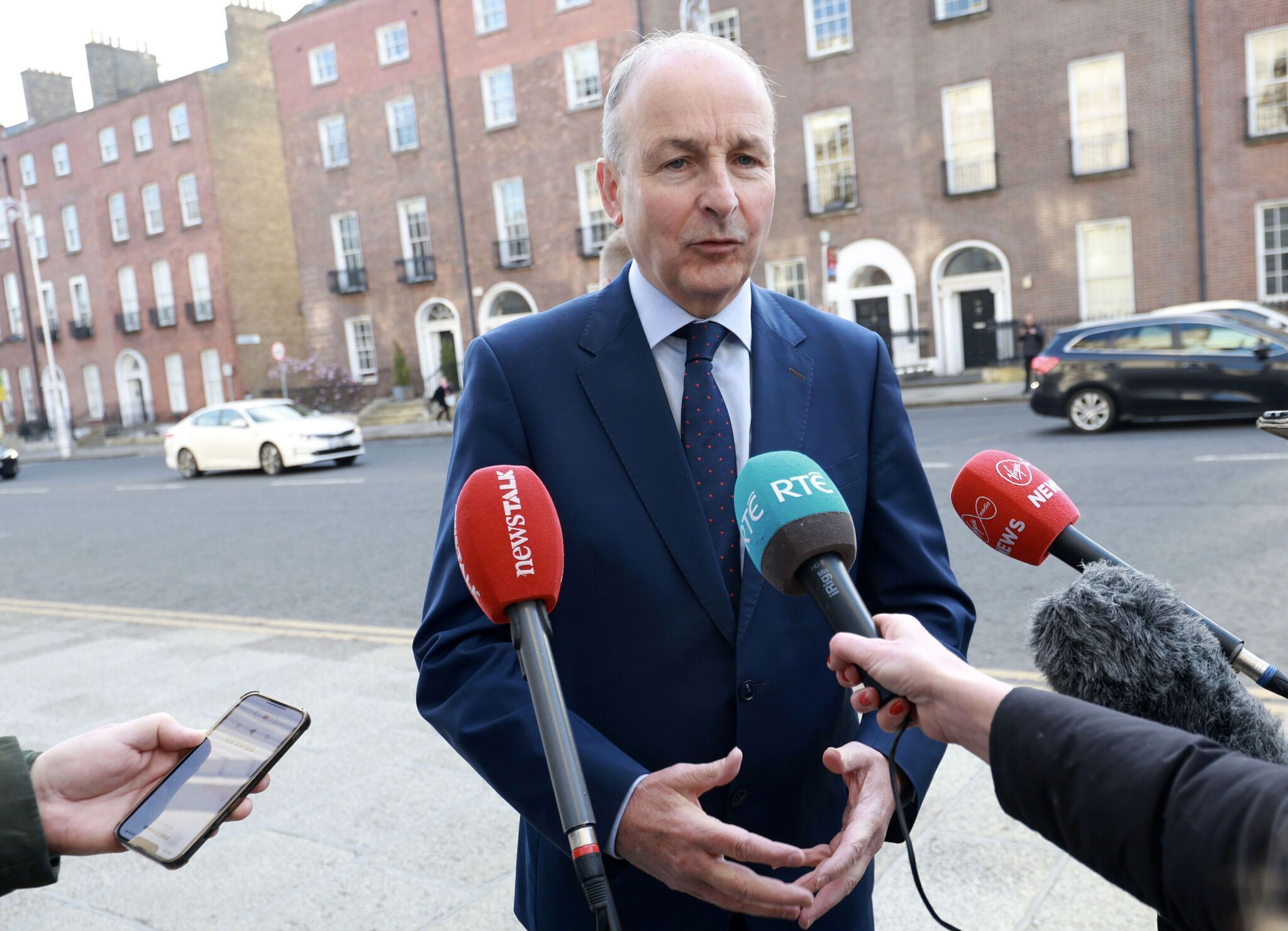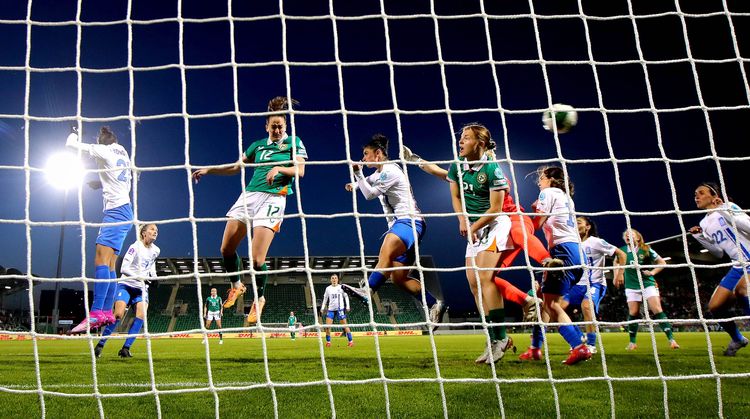Perhaps it's a good thing that President Trump has not appointed a new U.S. Economic Envoy to Northern Ireland as some have urged.
Had he done so, the envoy, he or she, would have been hard pressed to explain the imposition of ten percent tariffs on the North in common with next door Great Britain.
He or she would have been hard pressed to explain how the varying tariff level on both sides of the border in Ireland - ten percent in the North, twenty percent in the South - will generate enormous complications in the ways that both work together in the post-Brexit era.
Come to think of it, this page would have been hard pressed too. But the Ancient Order of Hibernians have managed to wrap their heads around this aspect of President Trump's worldwide tariff war against friendly nations, not so friendly ones, islands occupied by only penguins and, in one instance, an island occupied solely by U.S. troops.
We could say go figure, but that would take up the rest of 2025.
The AOH analysis of where we are now with regards to the North, the South, and the EU, is reported on Page One of this issue.
The Hibernians state in part: "The U.S. tariffs revive the very tensions the Windsor Framework was designed to settle. The post-Brexit settlement sought to resolve a constitutional and trade conundrum: how to preserve Northern Ireland’s peace while respecting the UK’s withdrawal from the European Union. The Windsor Framework, though imperfect, has provided a working compromise—maintaining an open border on the island of Ireland that is one of the most tangible successes of the Good Friday Agreement.
The new tariffs jeopardize that success, reflecting a troubling lack of understanding of Northern Ireland’s post-Brexit realities and dramatically undermining the delicate balance that makes peace in Northern Ireland work. By applying a 20% tariff to goods from the Republic of Ireland and a 10% tariff to goods from the UK, which includes Northern Ireland, the United States has created a two-tier system that injects fresh uncertainty into an already complex arrangement."
Given what has transpired in recent days "fresh uncertainty" seems like a polite understatement.
The 20 percent tariff imposition on the South - this in common with the tariffs imposed on the entire European Union, will have the most serious consequences should they remain in place for a protracted period
Reacting to Trump's sweeping tariffs, Taoiseach Micheál Martin said there was “no justification” for them.
“More than €4.2 billion worth of goods and services are traded between the EU and the U.S. daily,” said the taoiseach.
“Disrupting this deeply integrated relationship benefits no one. Tariffs drive inflation, hurt people on both sides of the Atlantic, and put jobs at risk. We will now reflect with our EU partners on how best to proceed.
“As I agreed with President von der Leyen in our recent phone call, EU unity is crucial, and our response should be considered and measured.
“Any action should be proportionate, aimed at defending the interests of our businesses, workers and citizens.
As it turned out, action was proportionate and then some.
As the Irish Times reported Tuesday: "The European Union (EU) is to hit back at the United States with its own tariffs, targeting a range of goods from US soybeans, to steel, oranges, chainsaws and washing machines.
"The EU plans to charge import duties of up to 25 per cent on a number of products sold from the US, in the bloc’s initial response to massive tariffs on global trade introduced by US President Donald Trump.
"The list of US products and goods that are to be hit with tariffs by the EU has been the subject of intense lobbying between national capitals over recent weeks.
Bourbon, wine and US dairy products had been in the firing line, but France, Italy and Ireland lobbied hard against their inclusion, over fears their domestic spirits and agricultural industries would in turn be drawn into the middle of the EU-US dispute."
Before this retaliatory action the taoiseach was looking for a way out stating: “Now is a time for dialogue, and I believe that a negotiated way forward is the only sensible one. A confrontation is in no one’s interests. Ireland will be a strong advocate for an outcome which enhances the existing and strong transatlantic trading relationship.
“As a small, open economy, and as a country that has built our prosperity on a policy of free and fair trade, there is no doubt that the imposition of tariffs by the US will have an adverse impact.
“Ireland’s priority is the protection of jobs and our economy. We are starting from a position of strength, and our economy is resilient. It is important that we focus on factors that we can control, including improving our competitiveness and investing in infrastructure.
“By working with Irish-owned companies, multinationals, our EU partners and bilaterally with the US, we can and will weather this storm.”
Pity about the storm in the first place.









